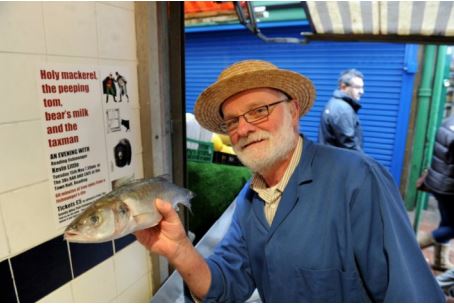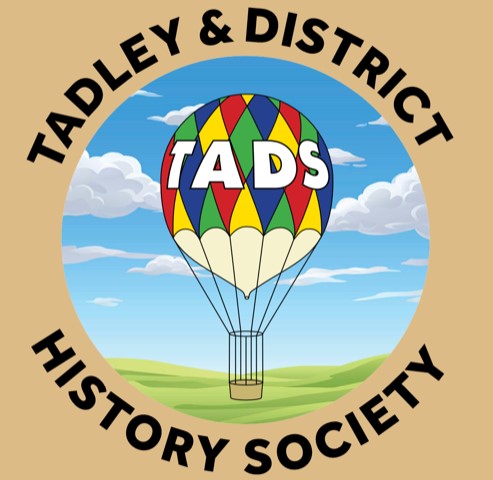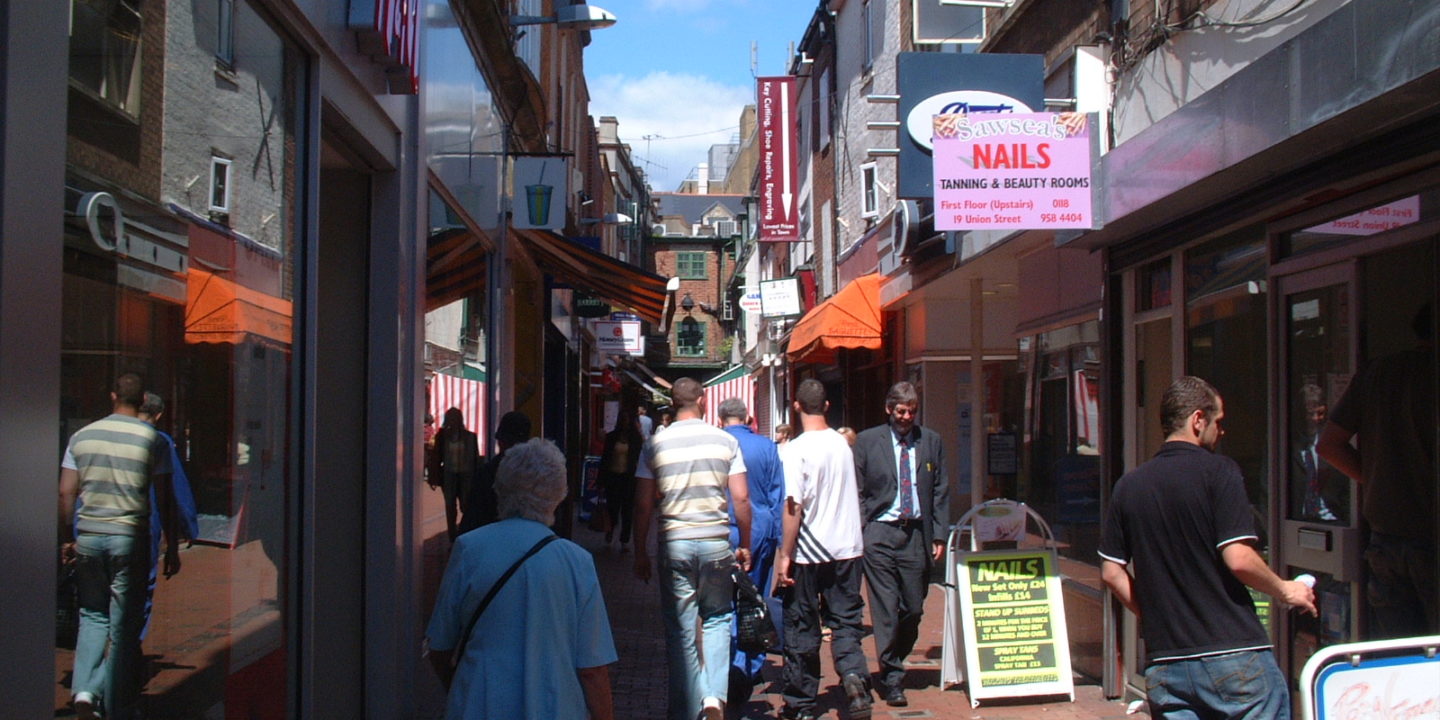Union Street, also known locally as Smelly Alley, is a pedestrian alley in the centre of the English town of Reading. It is lined with small shops and other retail outlets, and connects Broad Street and Friar Street. The name Smelly Alley came about in the 1940s, as there were many butchers and greengrocers, as well as two wet fish shops. In the 1970s there were four butchers, two greengrocers and two wet fish shops; also a baker’s shop, two record shops, a hi-fi shop, a shop selling jeans, a cafe, a roast chicken shop, a chocolate shop and a hardware shop.
TADS Zoom Talk on Smelly Alley by Kevin Little
Kevin is a raconteur and spent his talk telling stories from his past. He spent most of his life as a fishmonger based in Union Street in nearby Reading, which is known to locals as Smelly Alley. Why Smelly Alley? Most people think it must be because of the smells from the food and fish shops which were there. Sadly their number has much diminished in recent times but the street still
retains a lot of character. Kevin has a better reason for the name. Many years ago a man, a historian, came into the shop late in the day at a busy time and insisted upon showing Kevin a map from about 1500. At about where the street is today, the map showed a deep sewer which flowed into the River Kennet. The man said that it was a thirty foot drop into it from a very narrow footpath along the edge. More than that Kevin does not remember and he was never able to find the man afterwards, let alone the map. Many years later it transpired that the sewer running under the alley is a very long way down, so it may have some truth.
Why is it called Union Street? Many people think it was to commemorate the union of England and Scotland, but a plaque which used to be on one of the buildings said the name was bestowed in a different year and it was simply that the street joined the two main streets of Reading town centre, Broad Street and Friar Street. It is much, much narrower than than West Street, Victoria Street and Cross Street, the other streets which join the two. That was about it for solid history, but Kevin’s following stories conveyed a social history of a way of life and trading which have probably disappeared.
There was Dudman the greengrocer who once bought a lorry load of small avocados which had been frozen and gone black inside. He sold them at £1 a bag and reckoned nobody would complain they were useless as they were exceedingly cheap and anyway it was just bad luck if they had spoiled by the time they were opened. In fact one person did ask for their money back but the greengrocer made a great deal of money from the rest. Do you know about Red Herrings? They came from Norfolk. They were salted for six weeks and smoked for five. Once done they are nearly indestructible and very smelly. Small boys used to get hold of them, tie them to a string and use them to lay scent trails to confuse the local pack of hounds.
Hence a false trail being called a red herring. The arrival of Mac Fisheries in the street was not welcome to the other traders. Mac Fisheries had their own trains to be certain to get their fresh fish to the town, whereas for the other fish merchants it was just dumped at Reading goods station after what was possibly a very roundabout journey courtesy of British Railways. Kevin recalled collecting a consignment of sprats which had been stuck in a siding for a week or two, un-refrigerated. Mac Fisheries often had four part stores, selling not only fish, but groceries, meat, and green grocery. In one place they had a butter promotion chalked on the window. A butter war started with one of the other shops undercutting them with a lower price marked on its window. The butter price steadily dropped from 3/6d (old money) all the way to 9d, a suicidal price. The Mac Manager finally went to the other shop and pleaded that they needed to put a stop to the war and get the price back to 3/6d, as he was by now supplying every other grocer in the town at a great loss. The fishmonger said he was not worried by the low price at all, especially as he didn’t sell butter.
Miller’s the Chemist was a very small chemist run by two old ladies which seemed to do very little trade. It turned out they were a front for selling abortion pills. A sad reflection of an older way of life, said Kevin.
There was a lot about encounters with the Public Health Inspectors – the selling of goose eggs, when is it legal or not? The regulations are absolutely baffling and bonkers. And flies. 5 flies in orbit in a food shop are OK, 7 are not. So you need to keep a Fly Logbook, “but inspector we are in a heat wave and it is 90oF”. etc, etc. Sometimes the traders talked their way out of problems, like the Polish salt herrings recipe which went wrong. A young lady inspector found the nearly forgotten barrel of herrings with a thick layer of dead
flies on top of the salt fish. Somehow Kevin’s dad convinced her it was to be expected of ‘Pickled Herrings in Blueflies’. The tale about small pigs in a fish shop fridge being ‘hoofed shark’ was not believed.
Then there was the cooked and garnished ‘mohair salmon’ which the customer thought was the best he had ever tasted, but to learn about that and other things you will have to see the talk for yourself. It is available in the Members’ area of the TADS website or I have it on a USB memory stick you can borrow. Thank you Kevin for your very entertaining tales from Smelly Alley. If it hadn’t been for interruption by a technical glitch I am sure you could have kept going for much longer.
Richard Brown
_______

________
Kevin Little at the time of his closing Frosts
the Fishmongers in Smelly Alley, Reading.
(Image: Reading Titles)


